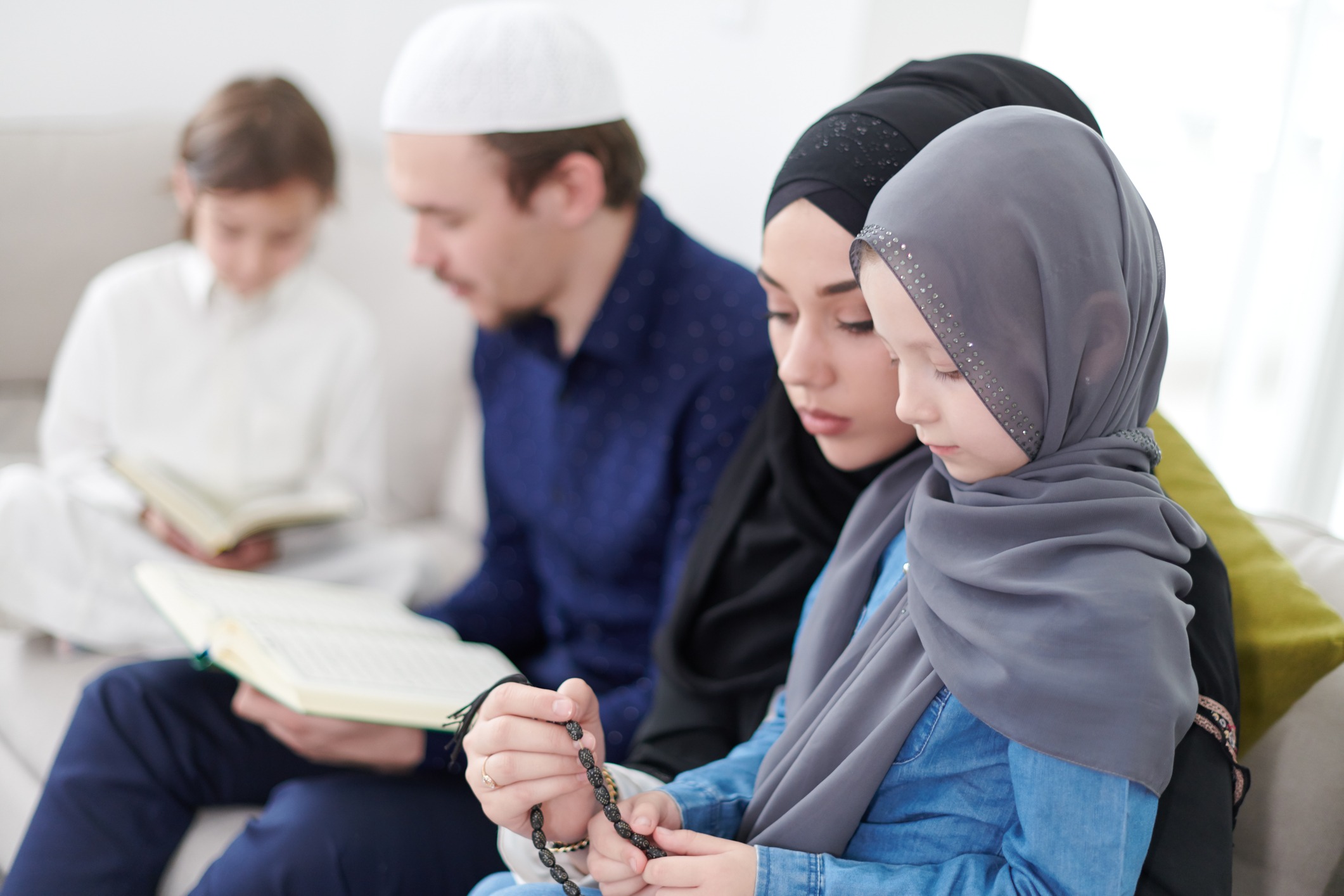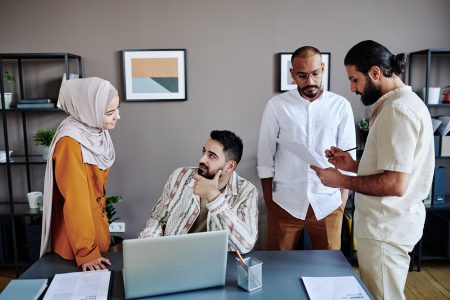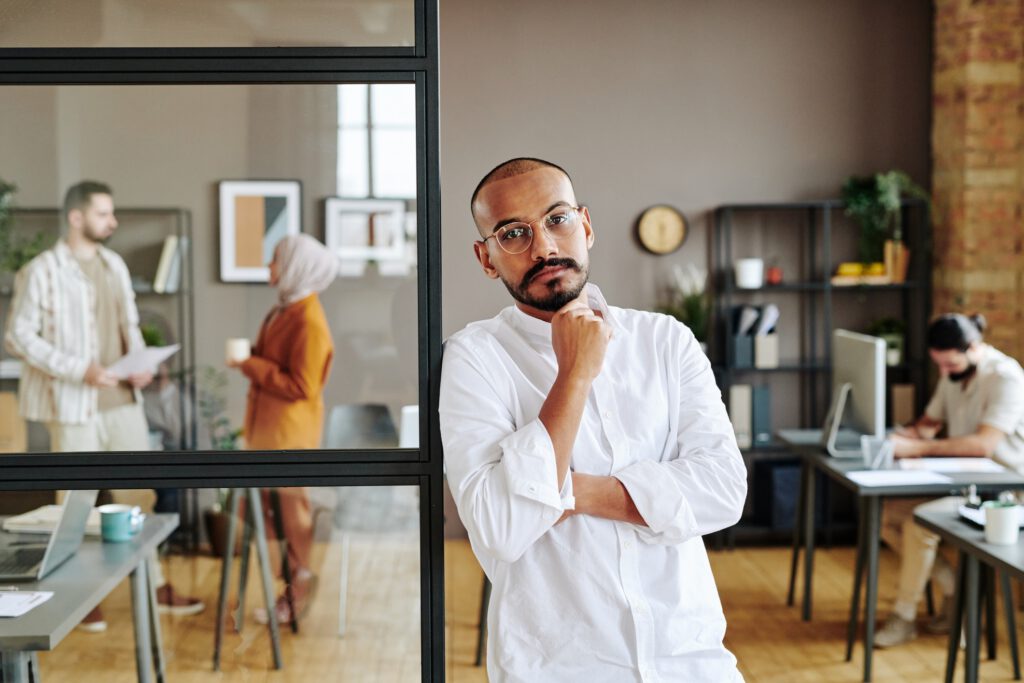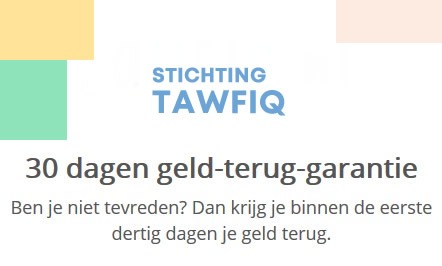-
Islamic knowledge, education and training
- How can parents help their children develop a healthy identity in the light of Islam?
- How can mosques and religious leaders help young people develop a healthy identity?
- What are the benefits of encouraging young people to explore their cultural and religious values?
- What are the dangers for young people who try to define their identity against Islamic values?
- How can we help young people to look at themselves honestly and develop their personal identity on that basis?
“Build your identity, be guided by Islam!”
In this introduction I will discuss developing a healthy identity among Muslim young people. Islamic culture is a complex and dynamic culture that is strongly influenced by various factors, including religion, politics, economics and social conditions. Developing a healthy identity among Muslim youth is therefore crucial for their personal growth and well-being. I will discuss how this identity development can be encouraged through educational programs, cultural activities, and mental health programs. In addition, I will also discuss the challenges that can arise in the process of healthy identity development among Muslim young people.
How can parents help their children develop a healthy identity in the light of Islam?
Parents can help their children develop a healthy identity in light of Islam by teaching them about the values and norms that Islam encourages. They can also help their children become aware of their own identity, which will help them feel more connected to other people. Parents should also be open to discussions with their children about various aspects of Islam, such as religious practice, prayer rituals and religious holidays. In addition, there must be room for exploratory research into other cultures and religions, which can contribute to the understanding needed to interact with each other respectfully. Parents can also become actively involved in community activities aimed at strengthening social bonds between people from different cultures and religions.
How can mosques and religious leaders help young people develop a healthy identity?
Mosques and religious leaders can help young people develop a healthy identity by providing them with information about their religious background. They can also guide youth in exploring their cultural and spiritual identity, helping them feel more connected to their community. Religious leaders can also promote honesty and respect for others, which helps to strengthen self-esteem. Furthermore, they can help young people become aware of the different ways people think, feel and act in the world, which can help them become more tolerant of other cultures and beliefs.
What are the benefits of encouraging young people to explore their cultural and religious values?
Encouraging young people to explore their cultural and religious values has many benefits. First, it helps them develop their identity. The values they learn help them understand themselves better and determine their place in the world. In addition, it can help them to be more respectful of other cultures and religions, which in turn contributes to a more tolerant society. It can also help them make better decisions about their future because they know what is important to them based on their culture or beliefs. Finally, it can also help young people build stronger bonds with others from the same community, which in turn contributes to self-esteem and feelings of connection with each other.
What are the dangers for young people who try to define their identity against Islamic values?
Young people who attempt to define their identity in conflict with Islamic values risk facing social exclusion, condemnation and even threats. They may also face a loss of family ties due to the pressure to conform to Islamic values. Also, they may suffer psychologically from the guilt that may arise as a result of their attempts to deviate from normal Islamic values. Furthermore, there may be a high risk that young people who attempt to define their identity in conflict with Islamic values may become victims of radicalization by extremist groups seeking to manipulate and abuse them for their own agendas.
How can we help young people to look at themselves honestly and develop their personal identity on that basis?
To help young people to look at themselves honestly and develop their personal identity based on this, it is important that they are given the space to express their feelings and opinions. Give them the opportunity to talk candidly with you about what is happening in their lives. Listen to what they say and let them know that you understand their situation.
It is also important that young people are encouraged to turn inward and reflect on who they are, what they want to achieve in life, why certain things are important to them, etc. Through creative activities such as painting or writing, young people can easily become expressive with their feelings.
In addition, it can be useful for young people to meet other people who share similar interests or who are going through similar situations to what they are going through. This way they can find support from each other and feel solidarity while they work on developing their personalities.
Finally, it is also important that young people are taught how to treat others respectfully and how to resolve conflicts fairly. Research shows that developing a healthy identity among Muslim young people is a complex process. There are many factors that influence identity development, including family, religious background, cultural context and societal expectations. It is important to understand how these factors work together to promote healthy identity development. Through education and guidance, Muslim young people can strengthen their personality and find their place in society.







